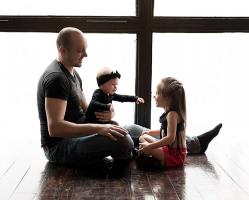Did you know 85% of parents think failure hurts their child's growth? But, the truth is, celebrating your child's failures can open doors to their future success. By teaching them that failure helps them grow, you build resilience and a love for learning.
Seeing failure as a gift lets kids learn and grow. When they face setbacks, they learn to be tough and understand learning better. Praising their hard work, not just their results, shows them failure is part of growing up, not a sign of their worth.
THE IMPORTANCE OF CELEBRATING FAILURE
Celebrating failure might seem counterintuitive, but it plays a crucial role in a child's growth. Failure is an integral part of life, a natural part of the learning process, and offers invaluable life lessons. When children see failure not as a setback but as an opportunity to learn, they become more likely to embrace challenges with confidence and perseverance. Here’s why celebrating failure is beneficial:
1. Fostering a Growth Mindset: When we teach our children to celebrate failures, we help them develop a growth mindset. This belief that abilities and intelligence can be developed through effort encourages them to keep trying, no matter how small the challenge. They begin to see failures as stepping stones towards success rather than insurmountable obstacles.
2. Building Resilience and Grit: Learning from mistakes helps children develop resilience. By understanding that their abilities can be improved, they are more likely to persevere in the face of adversity. This grit is essential for overcoming future challenges and achieving long-term goals.
3. Encouraging Risk-Taking and Innovation: Celebrating failure teaches children that it’s okay not to succeed every time and that they can use failure as an opportunity to grow. This understanding empowers them to take risks and try new things without the fear of failure holding them back. It reinforces the idea that challenges are opportunities to learn and grow and use failure as a stepping stone.
PRACTICAL WAYS TO CELEBRATE FAILURE
Create a Safe and Supportive Environment
To help children see failure as an opportunity, it's important to create a safe and supportive environment where they can learn from failure. Encourage your child to share their experiences and feelings about failure openly. This helps them understand that failure is also a part of the journey, a crucial life lesson, and not something to be ashamed of.
Focus on Effort and Process
When children encounter failure, focus on the effort they put in rather than the outcome. Praise their hard work, perseverance, and the strategies they used, even if they didn’t succeed. This way, they learn to appreciate the process and understand that their abilities are developed through effort.
Reflect on What Went Wrong
Teach your child to reflect on what went wrong, understand the life lesson, and what they can learn from it. Discussing the failure in a constructive way helps them identify valuable insights and lessons learned. This reflection is crucial for turning setbacks into opportunities for growth.
Set Realistic Expectations and Break Goals into Smaller Steps
Help your child set realistic expectations and break their goals into smaller, manageable steps. This approach makes it easier for them to see progress and reduces the likelihood of feeling overwhelmed, helping the child feel more secure. Remind your child that success may take time and that small failures along the way are part of the learning process.
Encourage Perseverance and the Willingness to Keep Trying
Resist the urge to shield your child from failure. Instead, encourage them to keep trying and to view challenges as opportunities to learn. Remind them that every effort counts and that perseverance is key to overcoming obstacles.
RECOMMENDED ARTICLE
[post_0]
THE LONG-TERM BENEFITS OF CELEBRATING FAILURE
Developing Self-Esteem and Confidence
Children that view failure as a learning opportunity are more likely to develop high self-esteem and confidence, thus turning failure as a stepping stone. They understand that their worth is not tied to their successes and failures but to their effort and willingness to grow.
Preparing for Real-World Challenges
By teaching children to celebrate failures, we prepare them for real-world challenges and encourage them to use failure as a path to success. They learn to approach problems with a positive mindset, understanding that setbacks are a natural part of life and a chance to gain valuable experience.
Enhancing Problem-Solving Skills
When children learn to reflect on what went wrong and how to improve, they enhance their problem-solving skills. They become adept at analyzing situations, identifying potential pitfalls, and developing strategies to overcome them.
Promoting Lifelong Learning
Encouraging children to celebrate failures fosters a love for lifelong learning and helps build grit and resilience. They become curious and eager to explore new ideas, knowing that failure is an integral part of growth and discovery.
STRATEGIES FOR PARENTS TO SUPPORT THIS MINDSET
Model Positive Responses to Failure
Children learn by observing their parents, especially how they learn from failure. By sharing your own experiences with failure and how you overcame them, you teach your child that failure is a natural part of life. Show them that you view your own failures as opportunities to learn and grow, and that learning from failure is a valuable skill.
Reinforce the Idea That Effort and Persistence Matter
Help your child understand that success is not solely based on natural talent but also on effort, persistence, and the ability to learn from failure. Praise their dedication and remind them that every attempt, no matter the outcome, is a step forward.
Create Opportunities for Safe Failure
Provide your child with opportunities to try new things in a safe environment where failure is not seen as a negative outcome but as a chance to learn. This could be through new hobbies, sports, or educational activities.
Discuss the Learning Process
When your child experiences failure, discuss the learning process. Ask them what they think went wrong, what they learned from the experience, and how they can approach similar situations differently in the future. This helps them see failure as a valuable teacher and an essential part of the gift of failure.
CONCLUSION
Celebrating failure is crucial for fostering a growth mindset, building resilience, and encouraging risk-taking in children. By creating a safe and supportive environment, focusing on effort, and helping children reflect on their experiences, we can teach them that failure is a natural and valuable part of life. This approach not only prepares them for future challenges but also instills a love for lifelong learning and personal growth.
As parents, it’s easy to get caught up in wanting our children to succeed every time. However, by shifting our perspective and celebrating their failures, we give them the greatest gift of all: the ability to learn and grow from every experience, no matter the outcome. So, the next time your child encounters failure, celebrate it with them. Show them that failure is not the end but a new beginning, a stepping stone on their path to success.












